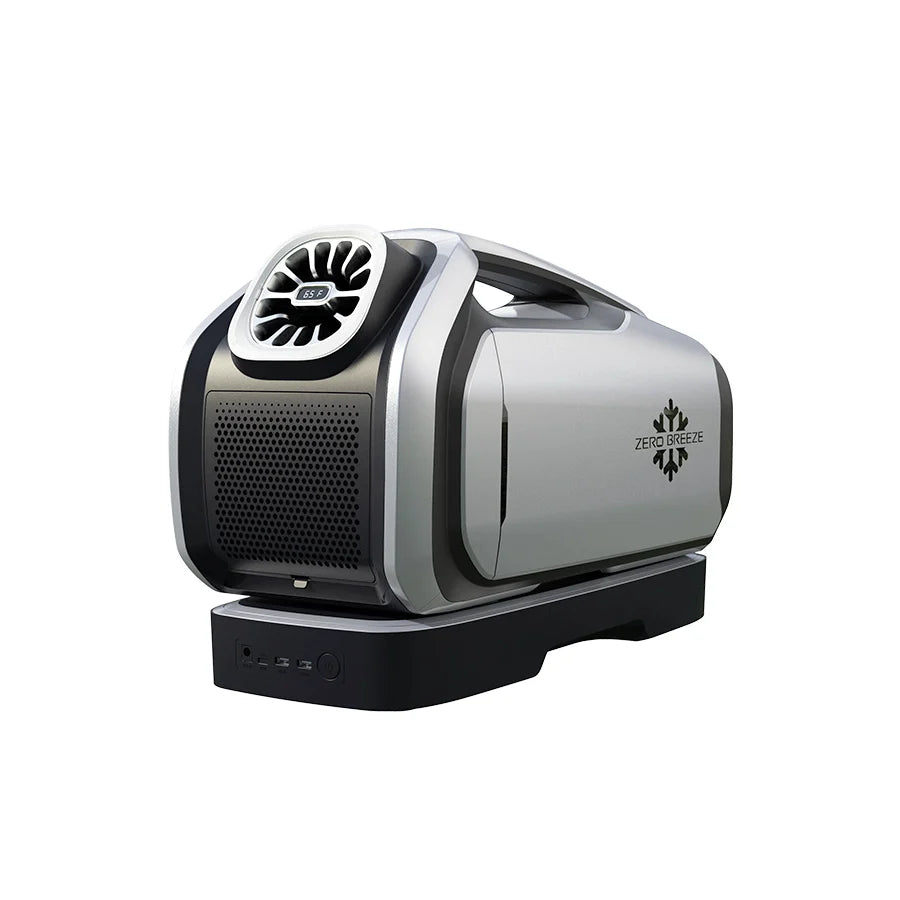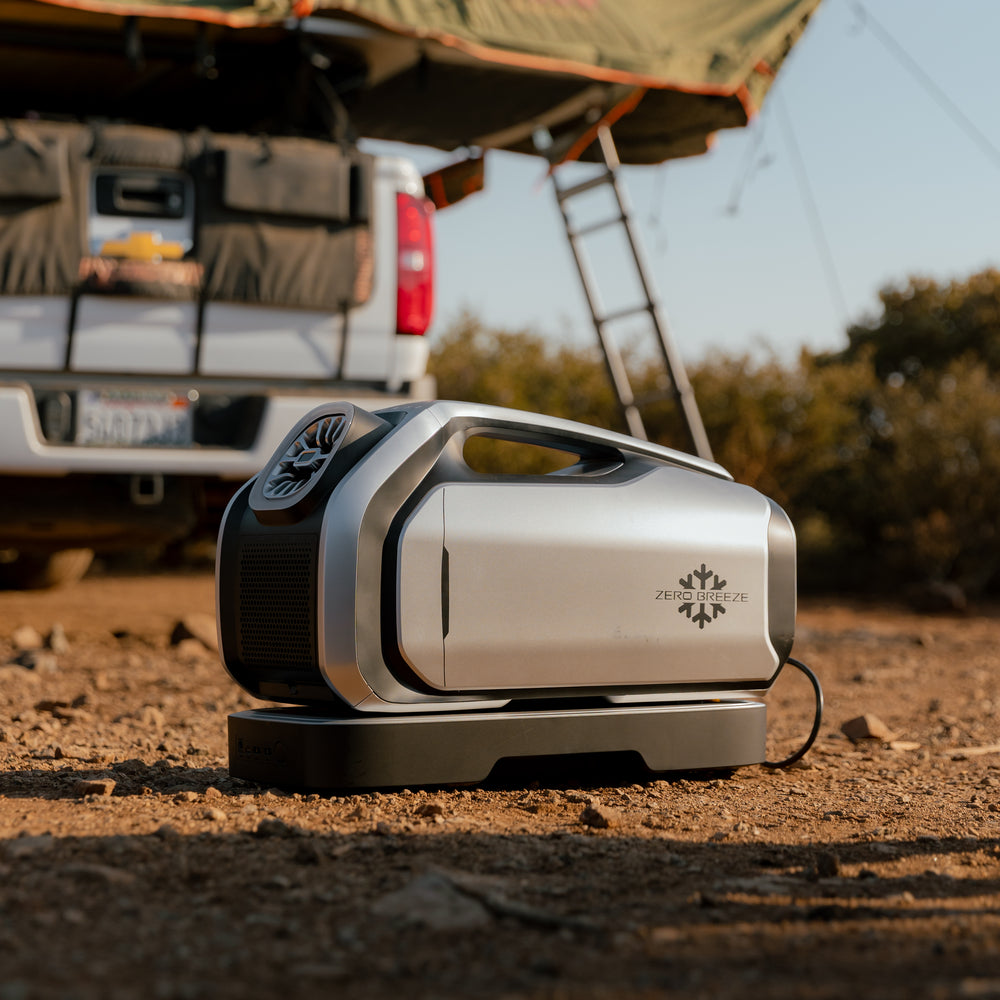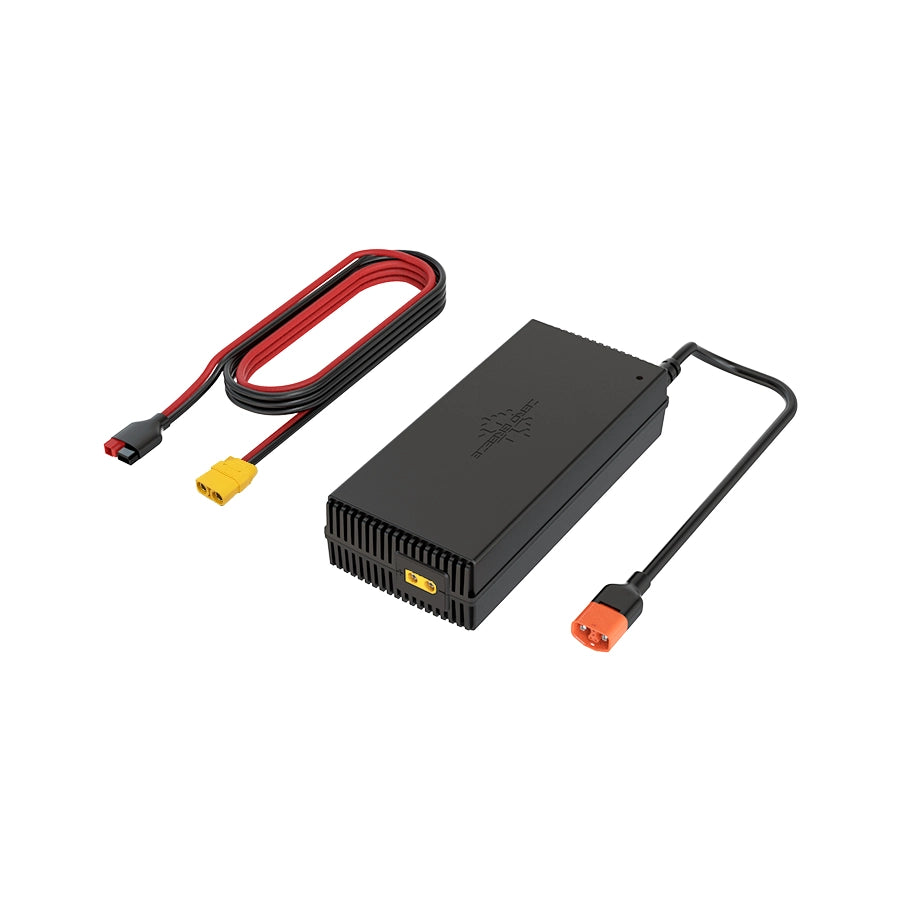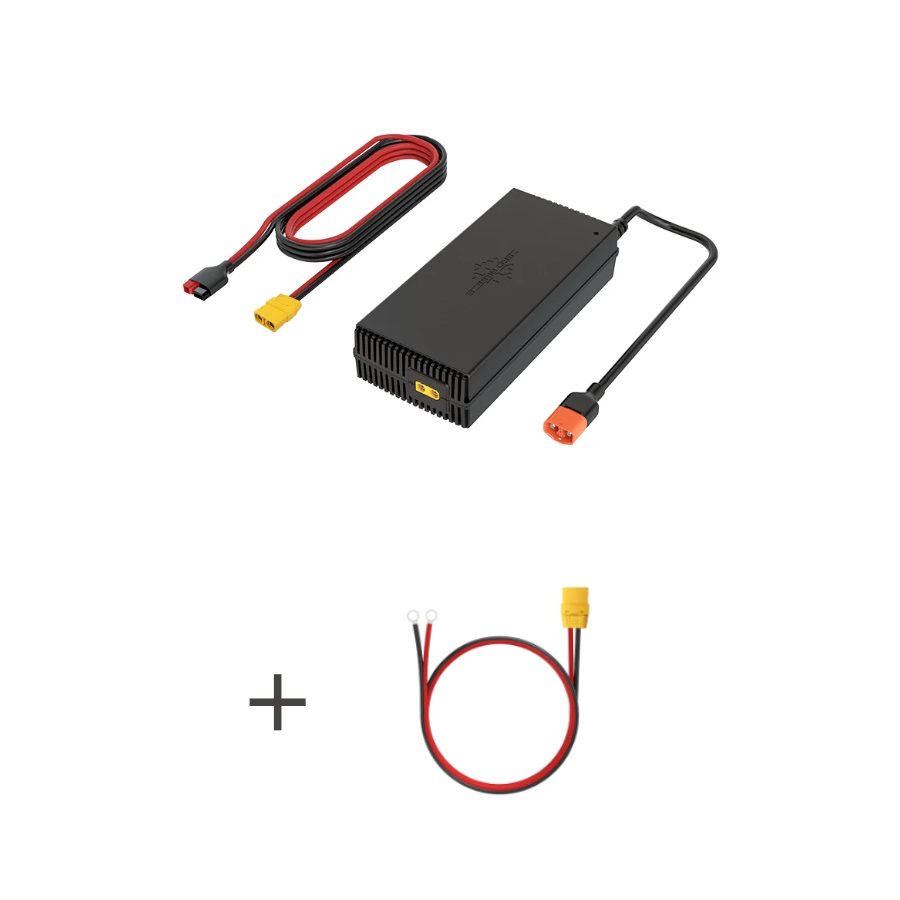Why do you need an outdoor portable air conditioner?

1. The main reason for outdoor discomfort is humidity
The main reason for discomfort outdoors is often humidity, which is the amount of water vapor in the air. In environments such as forests, lakes, and mountains, which we often visit, humidity is typically higher than in our homes. When we sweat, our bodies rely on the air to remove the accumulated sweat on our skin, which cools us down. However, when the humidity in the air is high, warm water stays on our skin longer, making us feel hotter. Meteorologists call this the "heat index."

Let's look at the NWS Health Index chart and you can see that the temperature/humidity combination puts your body at risk of heat illness.
2. The challenge of sleeping well outdoors
We are used to sleeping and resting in an air-conditioned environment. Even if the weather is not very hot, even if it is less than 80F, we still turn on the air conditioner to fall asleep when we are at home. When we are outside, everything is fine during the day, and our bodies can adapt, but when we try to sleep, the hot mattress, and humid air, make it difficult to sleep.
The survey report shows that more than 80% of those who do not want to go camping, the main reason is that they do not have a good sleep, which leads to exhaustion the next day.
Why Portable Air Conditioning is Recommended:
1. Why is using a fan not recommended?
Using a fan won't reduce the temperature in a tent or RV, but only increase airflow and sweat evaporation. It cannot alter humidity and won't be effective outside in hot and humid conditions.
2. Why are swamp coolers/evaporative coolers not recommended?
Swamp coolers and evaporative coolers work best in dry climates, where they add humidity to the air. But in a humid environment, the water molecules in the air are already saturated, so it cannot absorb more water molecules to achieve evaporative cooling. Therefore, evaporative coolers cannot reduce air temperature and humidity in humid climates. At the same time, they are bulky and not portable. Evaporative coolers have substantial freshwater tanks and require fresh water to work. Still, fresh water is a very precious resource in dry environments.
3. Why installing a roof air conditioner is not recommended?
-
The installation and maintenance costs are high, and the roof air conditioner needs to be refitted to the car, which is costly and will affect the vehicle's appearance.
-
Roof air conditioners consume a lot of energy and need to add refrigerant, which is troublesome. The fan and compressor in the roof air conditioner will generate a lot of noise during operation, which affects the user experience.
-
The roof air conditioner needs to be connected to the car's power supply system or the engine, which causes a lot of inconveniences.
How much cooling capacity do I need when resting outdoors?
1. What is BTU?
A unit of heat; is defined as the amount of heat required to raise the temperature of one pound of water by one degree Fahrenheit. It is also part of the American customary unit. Air conditioning usually refers to the ability of air conditioning to increase or decrease heat in space per hour.
2. How much BTU do we need?
To determine the appropriate size of an air conditioner, we can calculate the necessary BTUs based on the heat sources in the environment. For example, in a completely insulated and sunless room with a double bed, if two people are present and no other heat sources, a 1000 BTU air conditioner can maintain the room temperature, while a 2000 BTU air conditioner can cool the room below the ambient temperature. This is because the air conditioner removes more heat from the room than the occupants generate. Therefore, for a 40-square-foot sleeping space with two people and no additional heat sources at night, a 2000 BTU air conditioner is sufficient to cool the room.
Why choose ZERO BREEZE Mark2?
1. Cooling and dehumidifying
Mark2, as a portable air conditioner, reduces the temperature of the air outlet by 30℉ within 10 minutes, which quickly brings a fantastic experience. It also reduces the humidity of the air. 2300BTU can cool and dehumidify a 40 ft2 space, providing a comfortable outdoor experience. Mark2 is an actual air conditioner, with no need to add water or ice, a built-in 24V adaptive inverter micro compressor.
2. Portable, take control of your cooling comfort
-
The air conditioner weighs only 16.5 pounds, only half the size of a traditional portable air conditioner. The air conditioner and battery can be combined into one, so you can carry it with just one hand. It only requires linking the battery, not modifying the vehicle, tent, and so on, saving installation and modification costs. The refrigerant in Mark2 can last for ten years under normal conditions, so there is no need to add additional refrigerant.
-
The built-in 24V compressor has a cooling capacity of 2300 BTU. Still, it is smaller than a Coca-Cola can, which is the key to making the Mark2 compact and portable.
-
Mark2 AC realizes the air conditioner is as small and convenient as a travel bag, making it easy to place and move like a fan, close to the target and partially cooled, unlike traditional air conditioners, which can only work in a fixed location and must be cooled as a whole in the space to allow the cooling sensation to cover the demand area.
3. Providing you with off-grid living
Air Conditioning - takes a lot of electricity to run, large BTU air conditioners usually also require more power, an air conditioner consumes a staggering 1200w/h of electricity when producing 12000 BTU/hour of cooling. It can only be activated with the help of camp shore power. The 2300 BTU of the mark2 air conditioner can meet the daily needs of outdoor life. It can be portable for 3-5 hours with only one official battery. No need requires shore power, won't experience any disturbance from generators, and won't have to invest in costly solar power alternatives.














Leave a comment